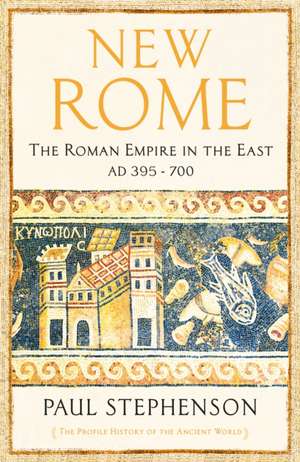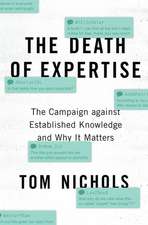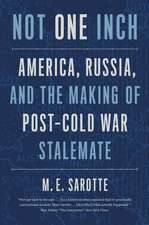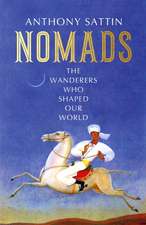New Rome: The Roman Empire in the East, AD 395 - 700: The Profile History of the Ancient World Series
Autor Paul Stephensonen Limba Engleză Hardback – 5 ian 2022
| Toate formatele și edițiile | Preț | Express |
|---|---|---|
| Paperback (2) | 80.92 lei 3-5 săpt. | +30.56 lei 4-10 zile |
| Profile – 4 ian 2023 | 80.92 lei 3-5 săpt. | +30.56 lei 4-10 zile |
| Harvard University Press – 14 noi 2023 | 173.72 lei 3-5 săpt. | |
| Hardback (1) | 204.32 lei 3-5 săpt. | +32.51 lei 4-10 zile |
| Profile – 5 ian 2022 | 204.32 lei 3-5 săpt. | +32.51 lei 4-10 zile |
Preț: 204.32 lei
Nou
Puncte Express: 306
Preț estimativ în valută:
39.10€ • 40.93$ • 32.35£
39.10€ • 40.93$ • 32.35£
Carte disponibilă
Livrare economică 17-31 martie
Livrare express 28 februarie-06 martie pentru 42.50 lei
Preluare comenzi: 021 569.72.76
Specificații
ISBN-13: 9781781250075
ISBN-10: 1781250073
Pagini: 464
Ilustrații: 16pp colour plate section, B&W integrated images and maps
Dimensiuni: 160 x 238 x 44 mm
Greutate: 0.74 kg
Ediția:Main
Editura: Profile
Colecția Profile Books
Seria The Profile History of the Ancient World Series
Locul publicării:London, United Kingdom
ISBN-10: 1781250073
Pagini: 464
Ilustrații: 16pp colour plate section, B&W integrated images and maps
Dimensiuni: 160 x 238 x 44 mm
Greutate: 0.74 kg
Ediția:Main
Editura: Profile
Colecția Profile Books
Seria The Profile History of the Ancient World Series
Locul publicării:London, United Kingdom
Notă biografică
Paul Stephenson has held teaching and research posts at universities, museums and institutes around the world, including at the Metropolitan Museum of Art, New York, and Princeton University. He has held chairs at the Universities of Wisconsin, Nijmegen and Durham. He is author or editor of ten books, including Constantine: Unconquered Emperor, Christian Victor.
Recenzii
Brings the world of New Rome alive with exceptional learning and a magnificent openness to modern scientific methods that breathe life into conventional narratives of political and social history.
A wonderfully sharp eye for data and detail. ... I have been quoting passages and surprising facts to everyone around me ever since putting it down.
Conventional histories of the last days of the Roman Empire will no longer suffice after you read this book.
The most compelling fusion yet of narrative history with the recent findings of environmental research and scientific data.
Stephenson's gift for narrative is matched by an eye for arresting images and quirky anecdotes that will surprise and delight even jaded readers.
Casts brilliant shafts of light on the material conditions and spiritual quests of the ruling and the ruled ... masterly
A new book from the historian Paul Stephenson centers on the Byzantine world in the period 395-700 A.D., combining modern scientific methods with traditional history to explain which parts of Rome migrated east and what became of them.
Stephenson explores evidence of climate change caused by volcanic eruption and earthquakes not so much as an engine for political change as a permanent threat to the human environment ... [he] draws with great skill and an eye for detail on the stories embedded in surviving papyri, on laws, and on saints' lives.
A wonderfully sharp eye for data and detail. ... I have been quoting passages and surprising facts to everyone around me ever since putting it down.
Conventional histories of the last days of the Roman Empire will no longer suffice after you read this book.
The most compelling fusion yet of narrative history with the recent findings of environmental research and scientific data.
Stephenson's gift for narrative is matched by an eye for arresting images and quirky anecdotes that will surprise and delight even jaded readers.
Casts brilliant shafts of light on the material conditions and spiritual quests of the ruling and the ruled ... masterly
A new book from the historian Paul Stephenson centers on the Byzantine world in the period 395-700 A.D., combining modern scientific methods with traditional history to explain which parts of Rome migrated east and what became of them.
Stephenson explores evidence of climate change caused by volcanic eruption and earthquakes not so much as an engine for political change as a permanent threat to the human environment ... [he] draws with great skill and an eye for detail on the stories embedded in surviving papyri, on laws, and on saints' lives.









